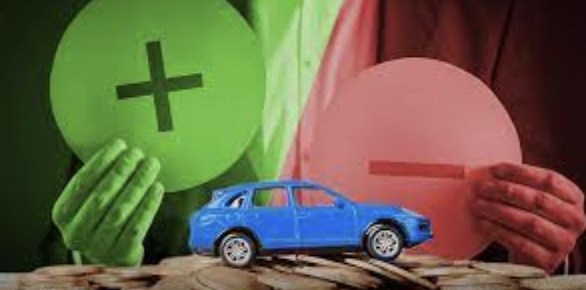A car loan is a serious financial commitment, one that involves numerous costs and fees that you need to be aware of before applying. One cost you may be wondering about is a deposit – how much you need to pay or if you can get a car loan without paying a deposit at all.
Car loan deposit
A car is a big purchase, and for many people, a car loan makes it possible to buy a vehicle without saving funds for years.
A deposit acts as a down payment. You agree to pay a portion of the purchase price upfront, and then pay off the remaining amount over the loan term. While you cannot get a home loan without having a deposit, when it comes to car loans, that is not always the case.
It can take time to save a deposit, which may mean you have to wait longer to get the car you need, so it’s important to know before applying for a car loan whether one is required or not.
Reasons you may need a deposit
Having a deposit is generally not needed for a car loan, however, there may be some reasons why a lender requires you to provide one.
One of the main reasons you may need a deposit for your car loan is if you don’t have any credit history, or you have a bad credit history. Lenders assess risk by reviewing your credit history. If you don’t have a credit history, a lender is unable to judge your track record in paying off debt.
Without this information, they may be more likely to ask for a deposit to offset their risk in lending to you. If you have a bad credit history that shows a failure to repay previous loans or debts, lenders may still approve you for a car loan, however, they are more likely to require a deposit.
Another reason you may need to pay a deposit is if you have negative equity on your current car. If you still have an outstanding balance on your current car, however, the value of your car has dropped below the remaining balance, which means you have negative equity. If this is the case, a lender may require you to pay a deposit if you apply for a new car loan.
Benefits of paying a deposit on your car loan
While not essential, if you can afford to pay a deposit on your car loan, there can be numerous benefits to doing so.
Having a deposit means there is less money owing on your car loan, and the bigger your deposit the smaller the amount left to pay off. This helps to reduce your monthly payments, making it easier to afford and pay off on time.
Having a deposit may also help you choose a shorter loan term. The length of time it takes to pay off a car loan impacts how much you pay overall. The longer the loan, the more interest you’ll pay.
A deposit can show a lender evidence of your reliability with savings, and since you’re borrowing less if you pay a deposit, the lender is likely to view you as less risky. This may help you get a lower interest rate on your car loan, which can save you a lot of money.
In some cases, having a bigger deposit can increase your chance of approval, and if you have the money to put down a deposit on your car loan, why not?
Choosing the right car loan
Whether or not you have a deposit saved, you need to ensure you can afford the repayments on your car loan. Check your budget, and use a tool such as a car loan calculator to get a guide on what your repayments may be.
Do your research to find the right loan for you and determine whether your lender will require a deposit. And if you’re not sure where to start, seek the advice of a finance specialist, such as the team at All Loans.

